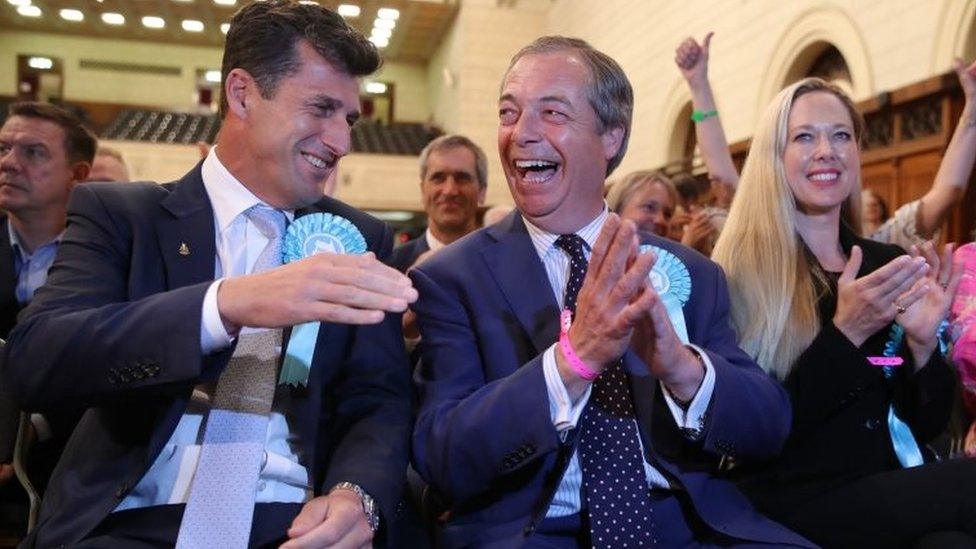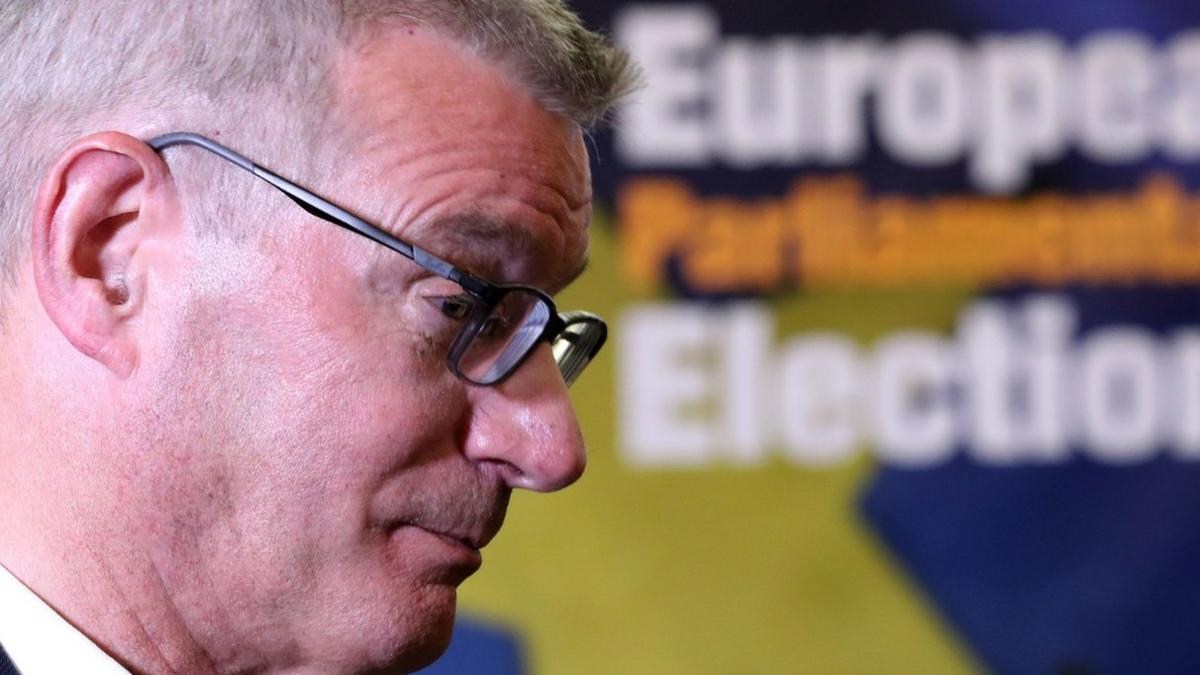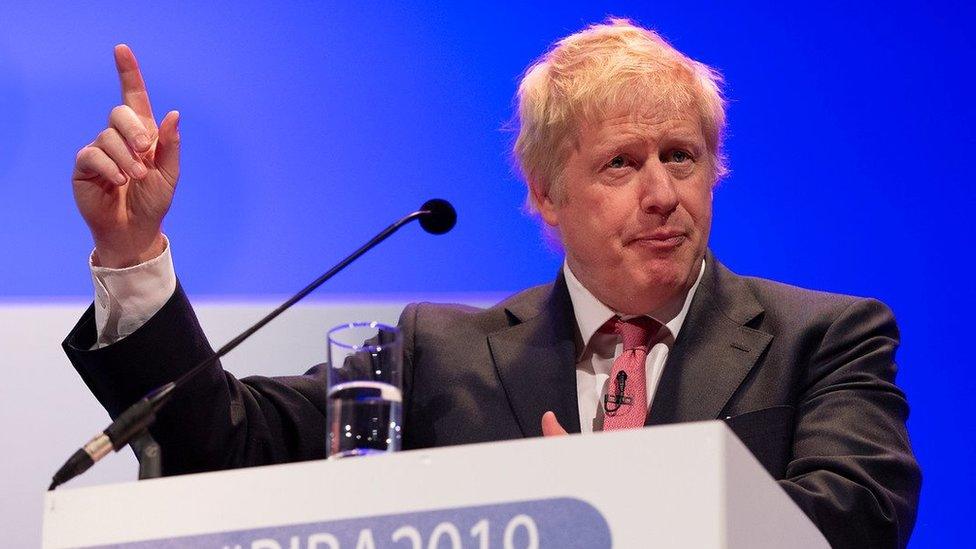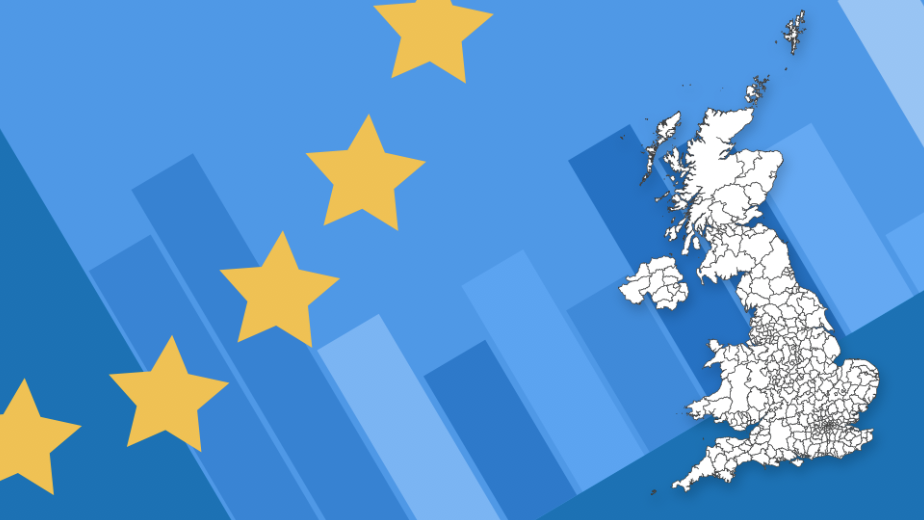Tom Watson: Labour Brexit referendum confusion cost votes
- Published
Tom Watson: Labour should 'urgently' consult members on Brexit
Labour deputy leader Tom Watson has said his party lost "many hundreds of thousands" of potential votes in the EU elections because of its Brexit stance.
He argued that confusion over holding a referendum on any deal had led to "electoral catastrophe", after Labour's share of the vote fell to 14%.
But he welcomed leader Jeremy Corbyn saying the party was "ready to support a public vote on any deal".
Several senior figures criticised Labour's position for lacking clarity.
Mr Corbyn has attempted to appeal to both Remain and Leave voters in framing Brexit policy, but has come under increasing pressure from senior figures in the party to back a further referendum.
In the European Parliament elections, the Brexit Party, which supports a no-deal Brexit, won the most UK votes. Meanwhile, parties supporting a further referendum, including the Liberal Democrats and the Greens, picked up support.
Backing for Labour and the Conservatives, whose members tend to have a broader range of views on the subject, slumped.
As the results came in, shadow chancellor John McDonnell, one of Mr Corbyn's closest political allies, told the BBC another referendum may be the only way to break the Brexit deadlock in Parliament.
McDonnell: Brexit 'needs to go back to the people'
Faced with the prospect of a "Brexiteer extremist" running the Conservative Party after the contest to replace Theresa May as leader, Mr McDonnell said Labour must back a fresh public vote to prevent a "catastrophic" no-deal scenario.
"Of course we want a general election, but realistically, after [the European election results] last night there aren't many Tory MPs who're going to vote for a general election," he said.
"It would be like turkeys voting for Christmas, so our best way of doing that is going back to the people in a referendum."
Jeremy Corbyn spells out his party's "very clear policy"
The House of Commons has rejected Prime Minister Theresa May's withdrawal agreement with the EU three times, and cross-party talks between Labour and the Conservatives, aimed at ending the impasse, ended recently without agreement.
Mr Corbyn said Labour's policy had been "very clear" all along.
He also sent a letter to his MPs, saying it was "clear that the deadlock in Parliament can now only be broken by the issue going back to the people through a general election or a public vote. We are ready to support a public vote on any deal."
Mr Watson, who has called for "a confirmatory ballot" on any agreement, said he was "really pleased" that Mr Corbyn had now "signalled" a change in policy.
However, there was "very little time" before the 31 October deadline for Brexit, Mr Watson said, arguing that Labour must "urgently" consult its members either through a special conference or a ballot of members to change its Brexit policy.
He said Labour's Brexit policy had been agreed by "a very small number of people" on Labour's ruling National Executive Committee, which had caused an "electoral catastrophe".
"I voted Liberal Democrat," says Alastair Campbell
Labour's 14% vote share in the European elections is worse than its previous low in 2009. Across Britain, it was in third place, behind the Liberal Democrats and the Brexit Party.
Scottish Labour leader Richard Leonard, external and Welsh Labour leader and First Minister Mark Drakeford have also spoken out in support of another referendum following the EU election results.
Former Labour communications director Alastair Campbell told the BBC he had voted for the Liberal Democrats "for the first time in my life".
"I felt on this issue the Labour Party has let its own supporters down, its members down and the country down in the way that it has failed properly to develop a policy that the party and country could unite around."
Labour's MPs are divided on Brexit. David Lammy, who represents Tottenham, in north London, called for the party to "get its act together" and come out fully in support of another referendum.
But other Labour MPs in Leave-voting areas - like Don Valley MP Caroline Flint - said it would be a "mistake" for the party to appeal only to Remain voters.
- Published27 May 2019

- Published27 May 2019

- Published27 May 2019

- Published27 May 2019
